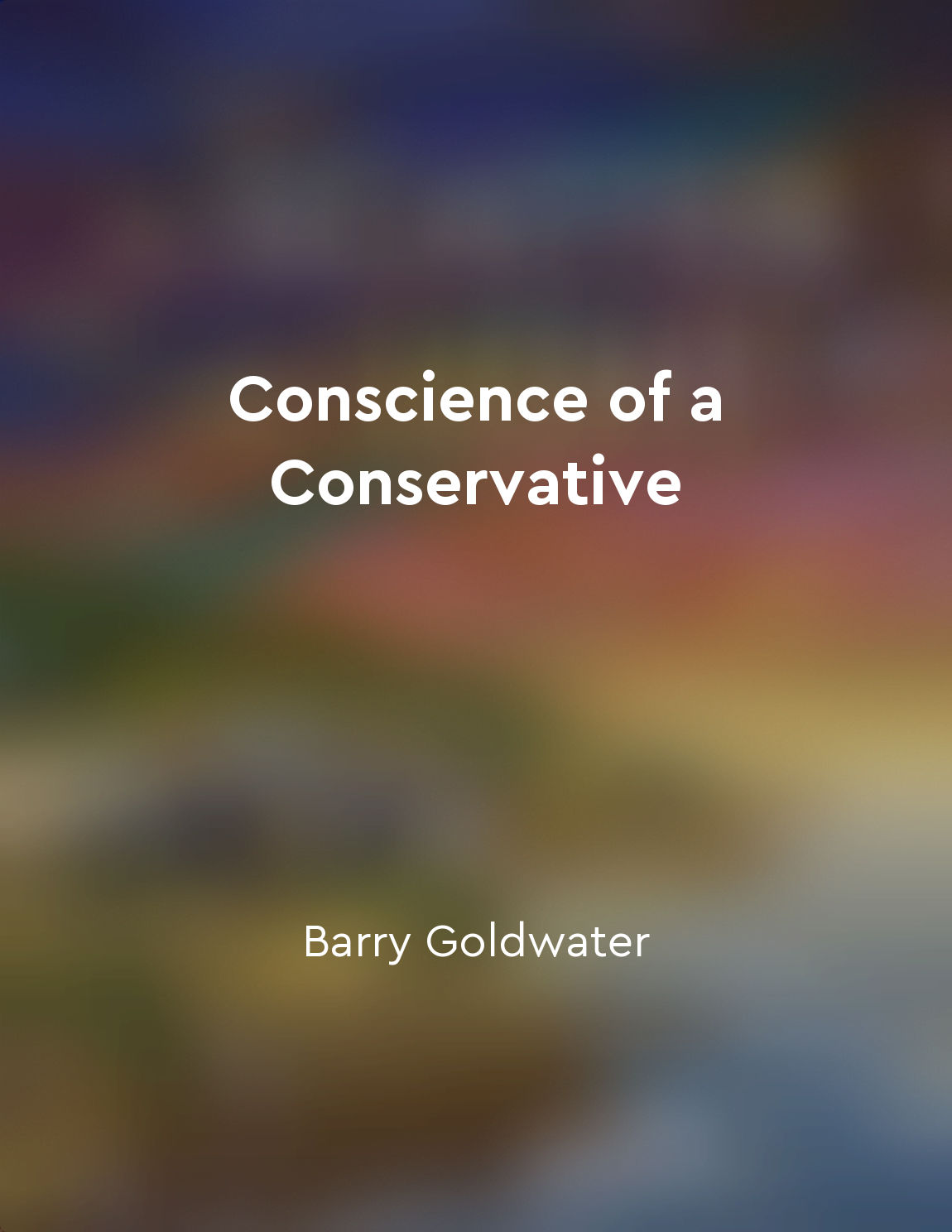Relationship between individual and state from "summary" of Political Philosophy by Henry Brougham Baron Brougham and Vaux
The individual and the state are inextricably linked in a complex web of rights, duties, and obligations. The relationship between them is defined by a delicate balance of power and authority, where the state must protect the individual's rights and freedoms while also enforcing laws and maintaining order. Individuals have certain natural rights that are inherent to their humanity, such as the right to life, liberty, and property. These rights are not granted by the state but are instead part of the individual's fundamental being. The state, on the other hand, is a political entity that is tasked with creating and enforcing laws that govern society as a whole. The state derives its authority from the consent of the governed, meaning that individuals agree to be governed by the state in exchange for protection and security. This social contract forms the basis of the relationship between the individual and the state, where each party has certain rights and responsibilities. The state has a duty to protect the rights and freedoms of its citizens, ensuring that they can live without fear of oppression or discrimination. This includes guaranteeing freedoms of speech, religion, and assembly, as well as ensuring access to justice and due process. At the same time, individuals have a duty to obey the laws of the state and contribute to the common good. This means paying taxes, serving on juries, and participating in the democratic process. By fulfilling these obligations, individuals help to maintain the stability and functionality of the state. However, there are times when the interests of the individual and the state may come into conflict. In these situations, it is important for the state to balance the needs of society as a whole with the rights of the individual. This requires careful consideration and a commitment to justice and fairness.- The relationship between the individual and the state is a complex and dynamic one that requires constant negotiation and compromise. By upholding the principles of democracy, equality, and justice, both parties can work together to create a society that is fair, just, and inclusive.
Similar Posts

Welfare programs should encourage selfreliance
The idea that welfare programs should encourage self-reliance is a fundamental principle that must guide our approach to social...

Property rights must be protected
The protection of property rights is a fundamental aspect of a free society. Property rights provide individuals with the incen...
Rights come with responsibilities
In a well-ordered society, individuals enjoy certain rights that are granted to them by the collective will of the people. Thes...

Ancient legal systems were based on customs
The legal systems of ancient societies were fundamentally rooted in customs. These customs were not arbitrary rules imposed fro...
Society thrives when individuals contribute
When individuals come together to form a society, they do so with a shared purpose and a common goal. Each person brings their ...
Democracy is constantly evolving
The idea that democracy is constantly evolving is a central theme in 'Democracy On Trial'. Rather than viewing democracy as a s...
Individual initiative drives economic success
The idea that individual initiative drives economic success is a central tenet of the free market system. When individuals are ...

